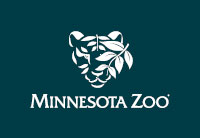 By Jeff Muntifering, Minnesota Zoo Conservation Biologist
By Jeff Muntifering, Minnesota Zoo Conservation Biologist
Greetings from Namibia, where in the Southern Hemisphere the days are getting shorter and colder but our efforts to protect the world’s last truly wild population of critically endangered black rhino continue to gain traction. Protecting rhino is expensive and the increased support from donors around the world, including Minnesota Zoo guests, has enabled us to significantly increase the number of trained and motivated ‘boots on the ground’. And these are not just any boots but those worn proudly by hand-picked local people that serve their community as Rhino Rangers, tasked with protecting the rhino that share their land. Their efforts have bolstered patrol effort by 450% and rhino sightings by 150% in less than 3 years – growing from 6 rangers across 3 communities in 2012 to 31 rangers across 13 communities at the end of 2015. Despite persistent high poaching levels in neighboring countries, only a few rhino have been lost this year in northwestern Namibia.
And we hope to keep the momentum going. We recently were requested by two partnering communities to consider doubling their ranger forces not just to increase patrols but also capitalize upon the growing demand for rhino tourism. This benefits the local communities and rangers by providing additional income and the rhino by increasing protection efforts and local support. It’s a win-win. While much of Africa continues to place emphasis on military-style protection to keep poachers at bay, we believe lasting success will only be achieved when local people place greater value on keeping rhino alive.
Yet, the battle is far from won. But you can help! We invite you to support this important work when you enter the Zoo this summer. You can also learn more or make a donation online. Thank you for your support!







Get Social